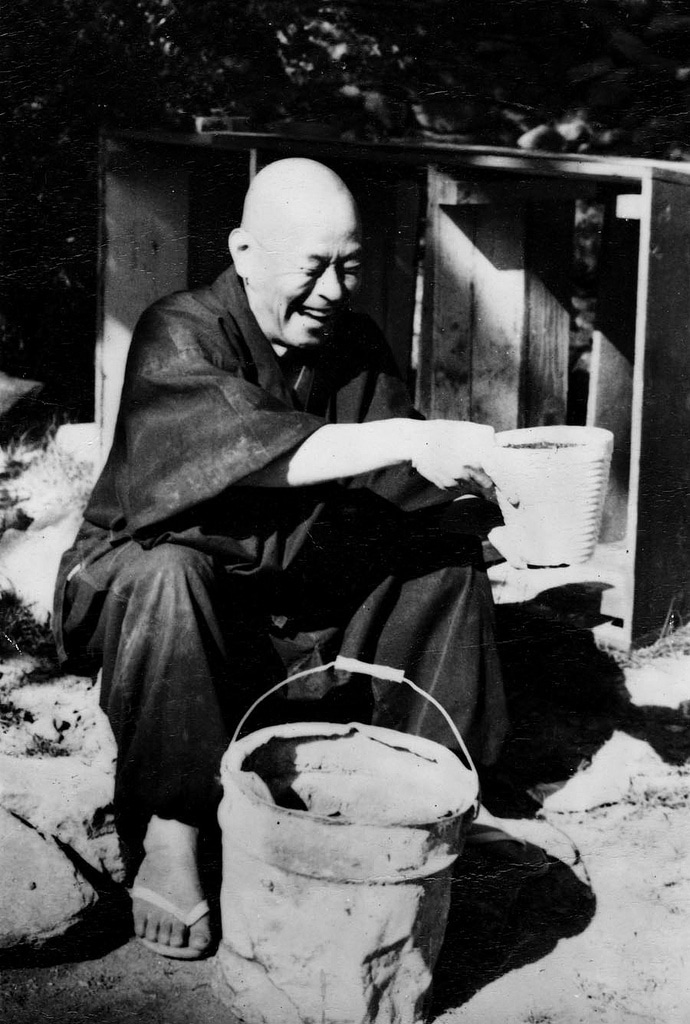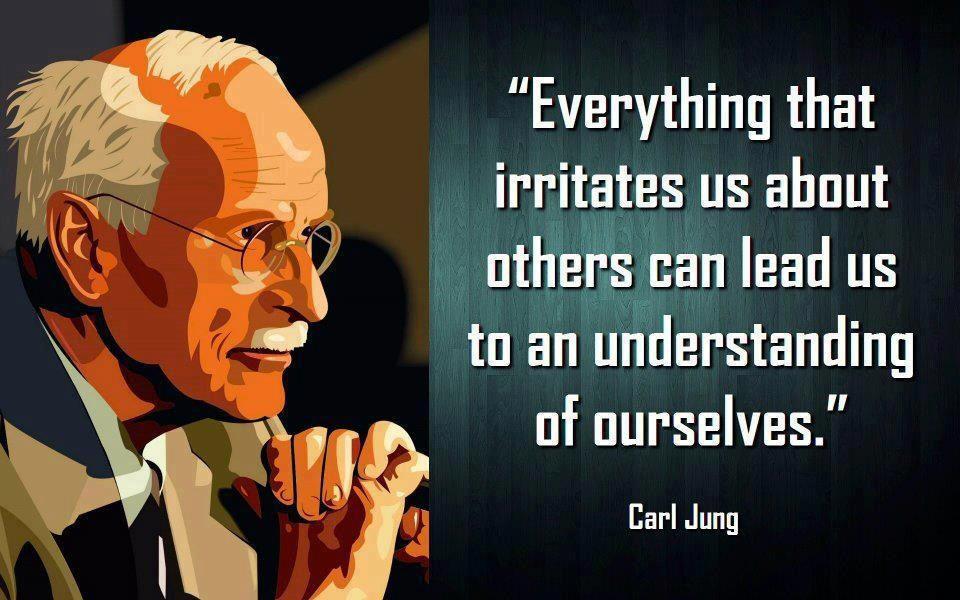Everyone needs material things, a healthy sense of pride, and a means to personal and spiritual satisfaction. We have all experienced our materialistic attitudes out of balance. It is how we know our spirit, when we are losing it or when it is gone. That is how we come to value it and even want to enhance it. Or we may see a “light on” in someone else that we would like to cultivate in ourselves. Either way, the contrast and balance between material and spiritual can get confused.
Spiritual materialism was a term coined by Chogyam Trungpa and is useful to understand why materialism can run so deep and how we can fool ourselves in thinking we are right on track. He said, “The problem is that ego can convert anything to its own use,” “even spirituality.”
The power of a confused ego is underestimated. The ego can twist anything into it’s own little reality, disregarding any objective reality.
For extreme examples, we can see materialistic values hidden in spirituality rampant in the world today. There are wars in the name of God, molests of children in the name of God, and discrimination against race and gender as if it is a “righteous” thing to do. It is an exaggerated entitlement in psychotic proportions. Taking what is not ours for ego enhancement, or ego gratification and telling ourselves it is for “spiritual reasons” or for “good” is materialistic because it is in the service of the ego, rather than in service of an awakened self .
Let’s start with a definition so we are all talking the same language.
Materialistic definition:
excessively concerned with physical comforts or the acquisition of wealth and material possessions, rather than with spiritual, intellectual, or cultural values.
Materialism definition:
a way of thinking that gives too much importance to material possessions rather than to spiritual or intellectual things. Merrium-Webster Dictionary.
Therefore, the opposite of materialistic and materialism is “spiritual, intellectual, or cultural values”. This gives us a spectrum to find the balance needed, materialism on one end and spiritualism on the other. We need both.
What is ego?
Ego is the center of our consciousness. It is usually where we are coming from when we say, “I did this, I feel, I think or what ever association to “me”. We all have egos in various stages of development, child through adult. But, if the adult ego does not become aware of his/her’s inner life with all it’s repressions, fantasies, dreams, spiritual longings, feelings, cravings, judgements, etc, there will be a build up of materialism, including spiritual materialism.
For example, if “I” (ego) am unaware of negative attitudes about myself, I might try to prove to others or even to myself how “good” I am. If this goes on for too long, I will imagine certain people to be bad, so I can tell myself I am on the side of good and spiritual and they aren’t. It helps the ego feel secure and in control.
Why are materialistic attitudes so entrenched?
We see through the eyes of psychology that we learn these attitudes as we grow up both consciously and unconsciously through our family and culture. Therefore, we can unlearn some of them and learn how to live with others. Consequently, spirit, energy, meaning, wisdom, empathy replace these narrow, rigid points of view of the ego.
We see the same in meditation. The practice of meditation is the process of letting go or unlearning materialistic attitudes, whether they are spiritual materialism or physical materialism.
In Zen we have small mind and big mind, Shunryu Suzuki . In Jungian psychology we have self/Self, small self and the big Self, conscious mind and unconscious mind.
When the small mind loses it’s relationship to big mind, spirit dims. If the small self ignores the Self, it will eventually get overwhelmed until it snaps out of it’s trance. But with extremely undeveloped egos, they may never wake up. This is because introspection and self awareness have been driven out or demonized.
To have spiritual wisdom from within also brings self reflection on all the other “material” that the ego would rather not feel and keep hidden.
Repression by the ego can have catastrophic consequences as I referenced above, harming other’s with righteous intent. But we can watch the subtleties of the mind and not be bothered by it, valuing our vulnerability as a deep source of humility and strength. Recognizing our “spiritual materialism” as a call to clarity and not some contrived sense of righteousness.
“Anyone who has any ego-consciousness at all takes it for granted that he knows himself. But the ego knows only its own contents, not the unconscious and its contents. People measure their self-knowledge by what the average person in their social environment knows of himself, but not by the real psychic facts which are for the most part hidden from them. In this respect the psyche behaves like the body, of whose physiological and anatomical structure the average person knows very little too.” C. G. Jung, CW 10, par. 491. (More on ego)
Materialistic values are out of balance when the small self has risen above the larger Self. We could say that the ego has risen above nature itself. Culturally the ego has risen above; Christ, Buddha, Allah, Mother Earth, and the Tao. So, consequently we see massive amounts of egos taking advantage of natural resources, women, children(gun violence), non-whites, and vulnerability in general.
Life, being an energetic process, needs the opposites, for without opposition there is, as we know, no energy. Good and evil are simply the moral aspects of this natural polarity. The fact that we have to feel this polarity so excruciatingly makes human existence all the more complicated. Yet the suffering that necessarily attaches to life cannot be evaded. C.G. Jung: Collected Works, Kindle ed. (143249-143252).
Necessary and Unnecessary Suffering
There are two main approaches to life’s suffering:
- Reduce unnecessary suffering.
- Accept the given suffering.
For example, My client says to me,
“I am aware that my tone of voice with my partner and our children is very reactionary. I am irritated with them over trivial matters and dumping that irritation on them with a demeaning tone voice. I am causing them and myself unnecessary emotional pain. Then my partner gets mad at me for blaming him/her. I get mad because now my partner is blaming me for blaming him/her. The argument escalates to some ridiculous loop that is really about “I need you to hear me because I can’t hear myself. I have lost touch with myself. And that fact is hard to accept.”
This is an example of how we notice where we create suffering for ourself and others. Also, there is some emotional suffering that needs to be accepted.
Noticing irritations and disappointments can be the doorway that “leads us to an understanding of ourselves” as Jung said above. This understanding of ourselves leads to uncovering attitudes, assumptions, and expectations that cause more problems and suffering for everyone, unnecessarily.
The person in our example needs to feel something and understand something from_within_ that appears too painful to acknowledge, _at first_. The realization of causing strife for others and oneself can be taken a little deeper by asking ourselves some questions.
“What don’t I want to feel?”
“What don’t I want to admit to myself?”
“What kind of help do I need with this?”
After some time with these questions, he/she goes back to talk with their partner. “First I want to say I am sorry for dumping on you. I have been struggling with something and didn’t even know it. I have actually been very disappointed in myself. I have not been taking care of myself very well. And it has been going on for way too long, physically and emotionally. Unconsciously, I have been expecting you to take care of me and then get irritated with you when you don’t do things the way I want you to. I need to take care of my own unhappiness. If I do need something from you, I can simply ask. Then we can talk about it. This unhappiness I am feeling goes deeper than I have been able to admit to myself. Let’s keep talking about this. I want to share this process with you. And, thank you for listening so well. By the way, I’ve been talking with my therapist about this. It all started with a dream.”
He/she partner responds, “Don’t stop there!”





